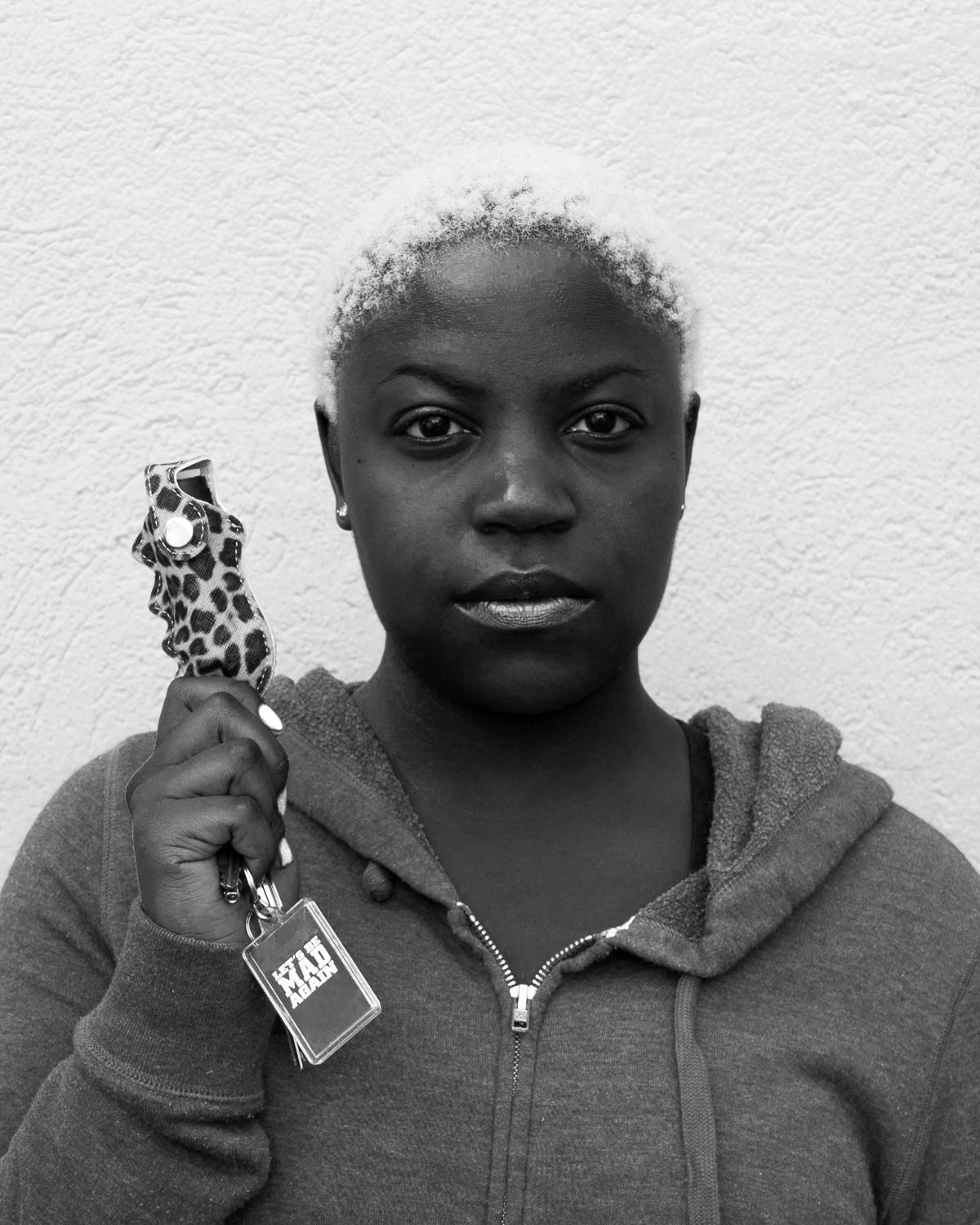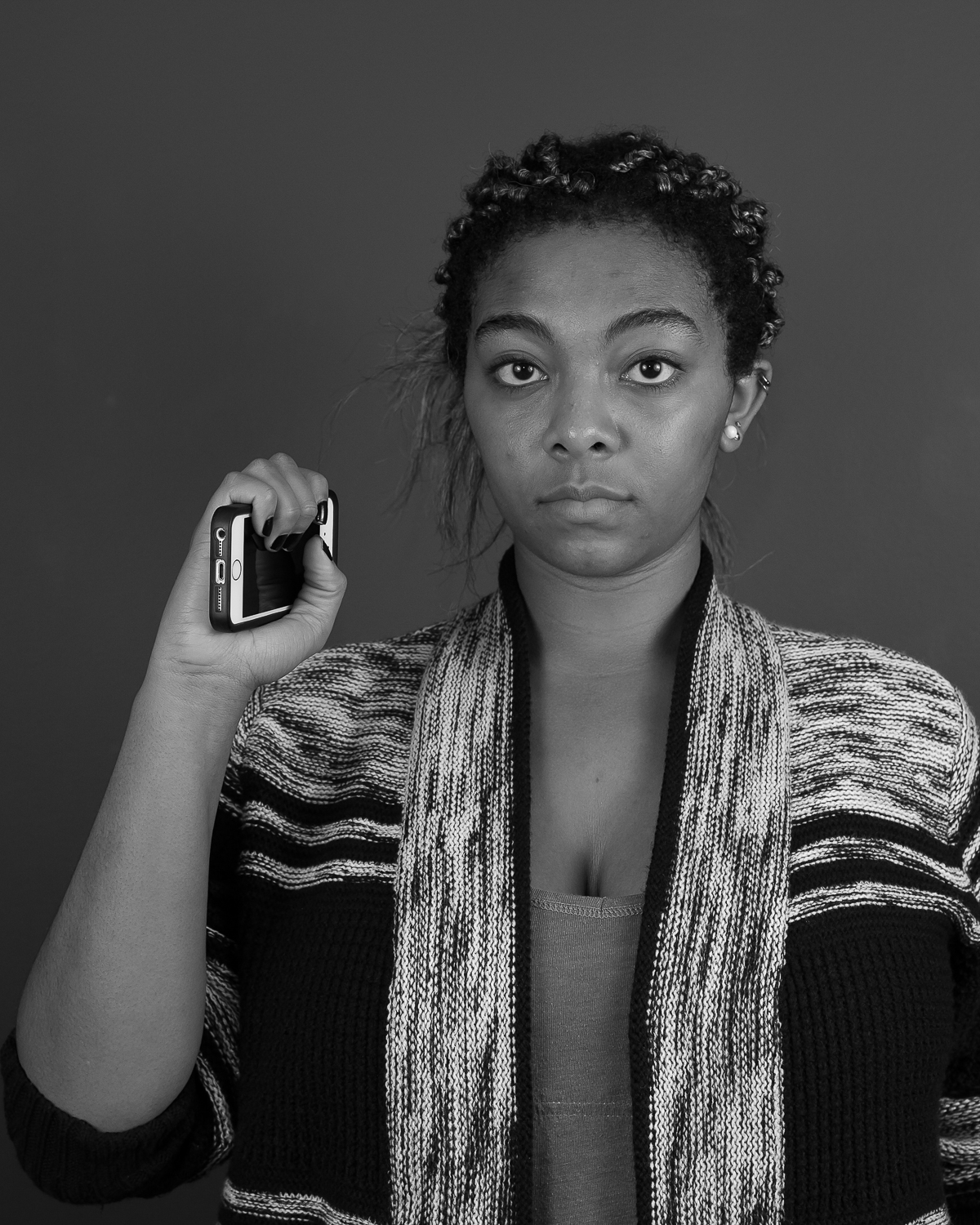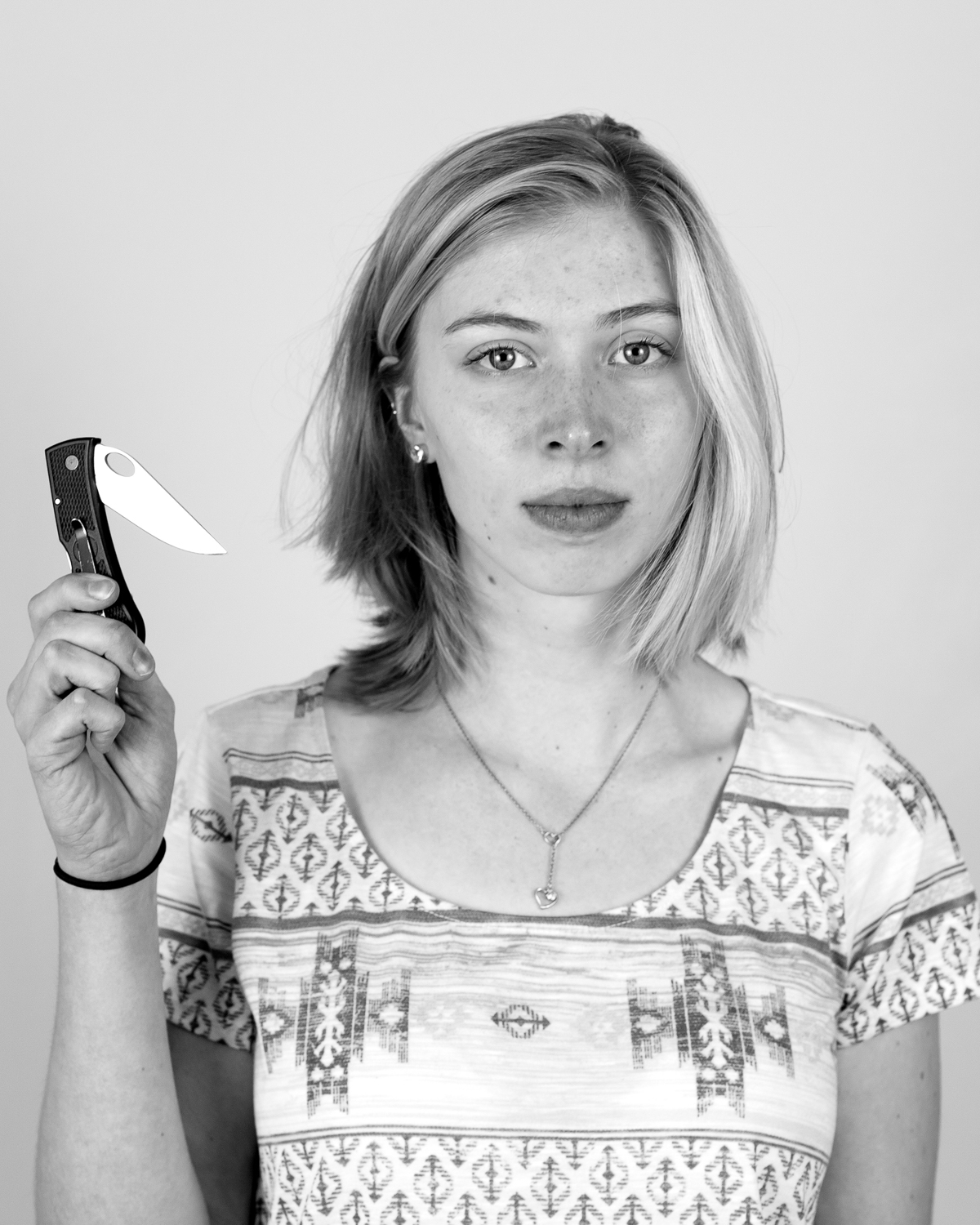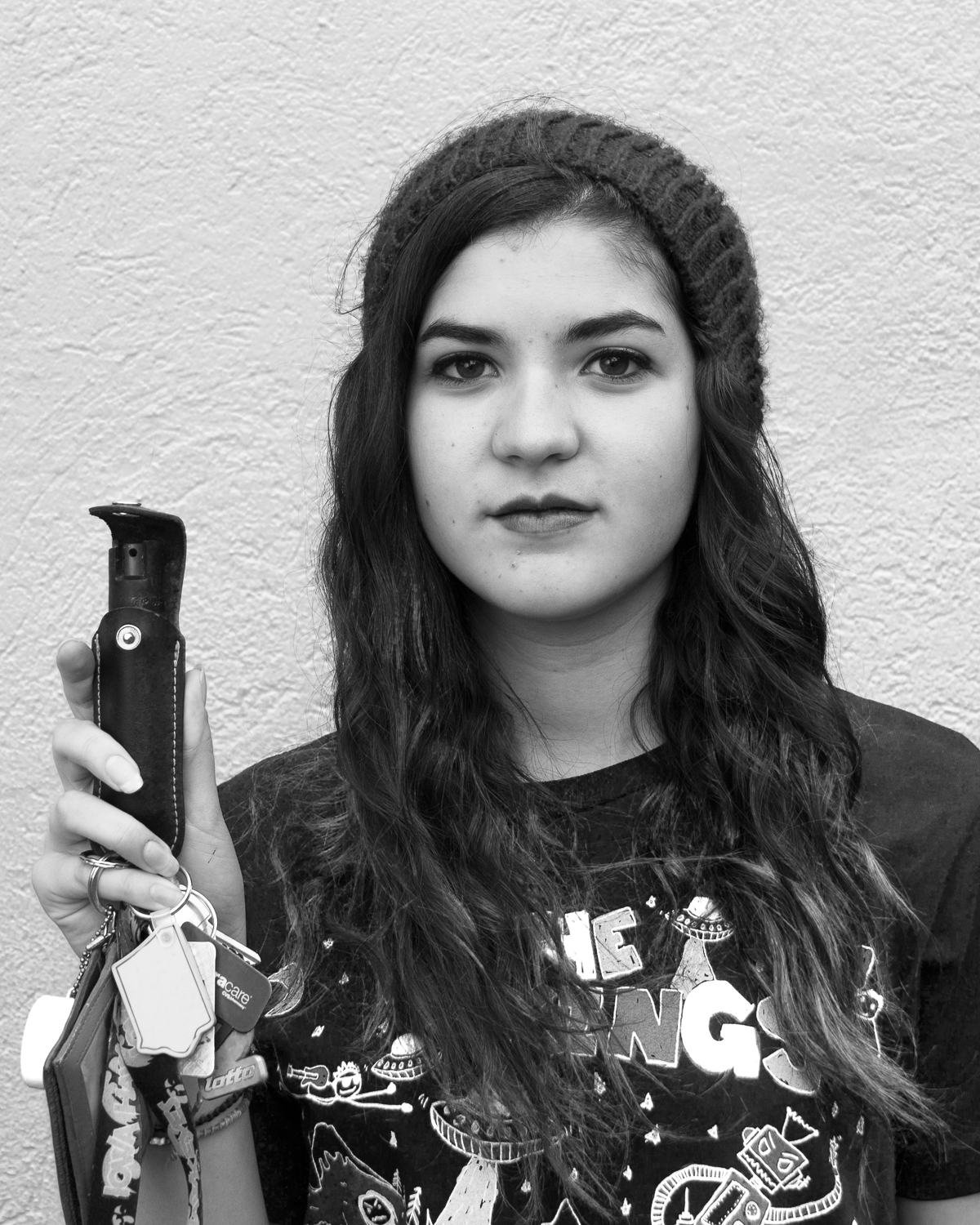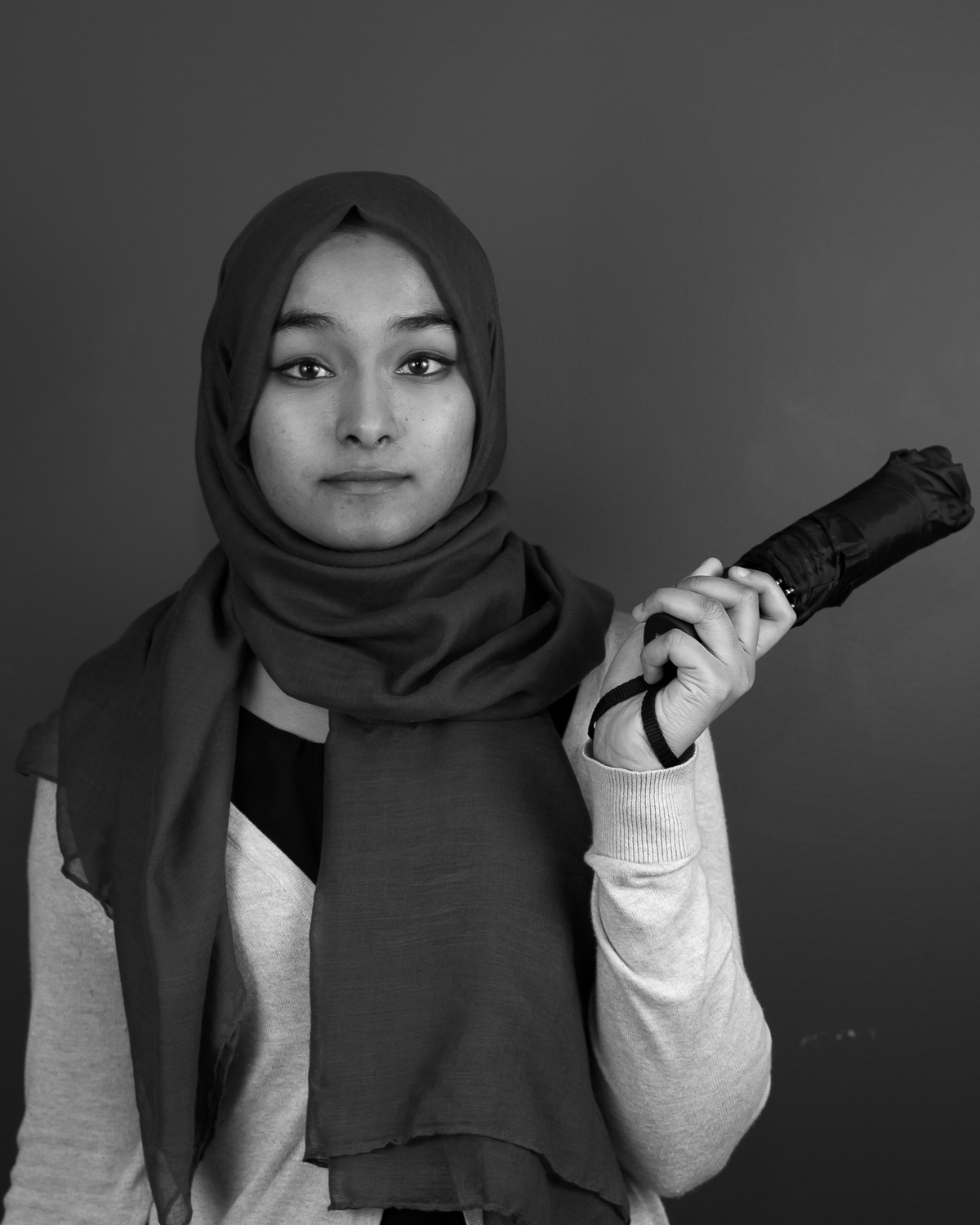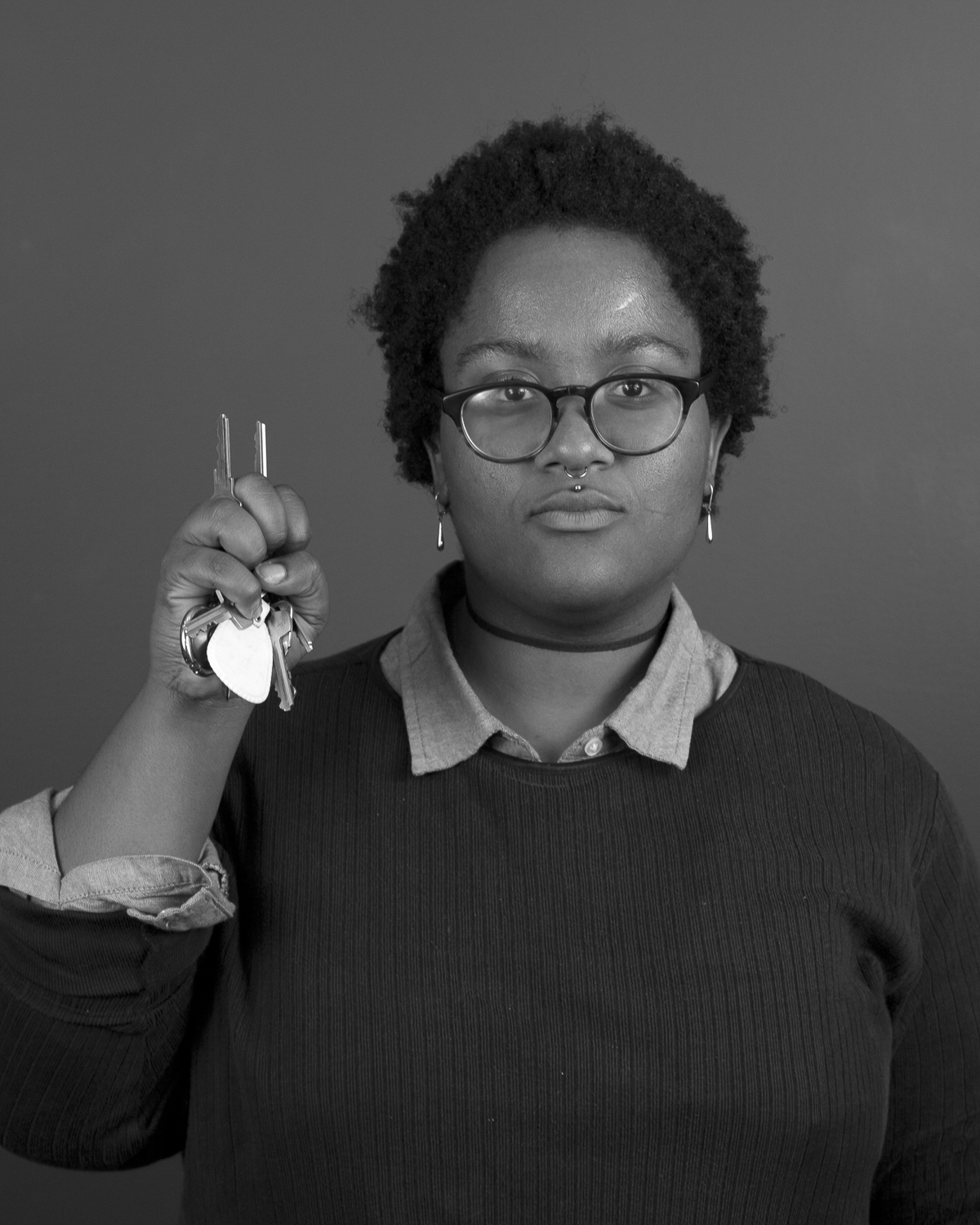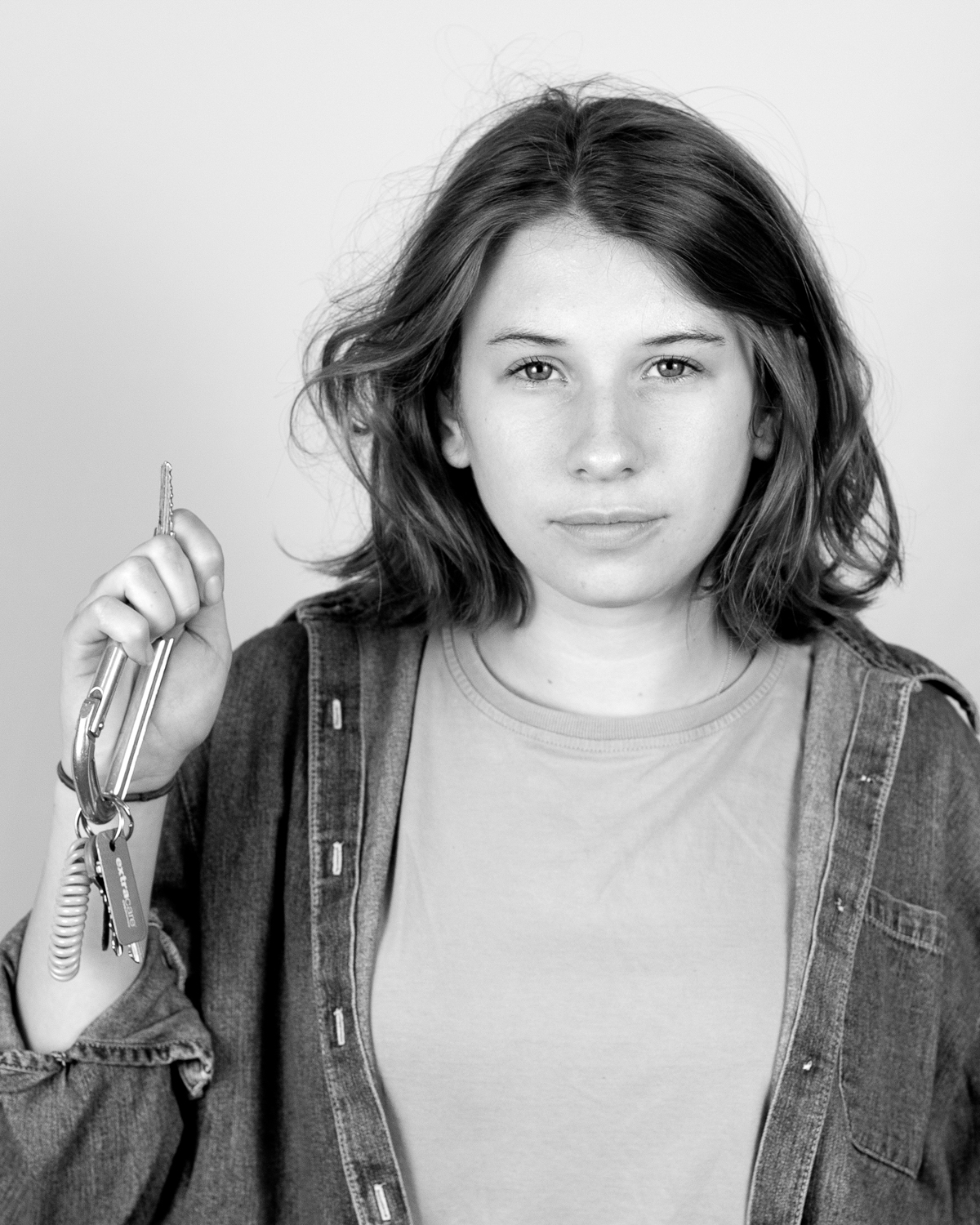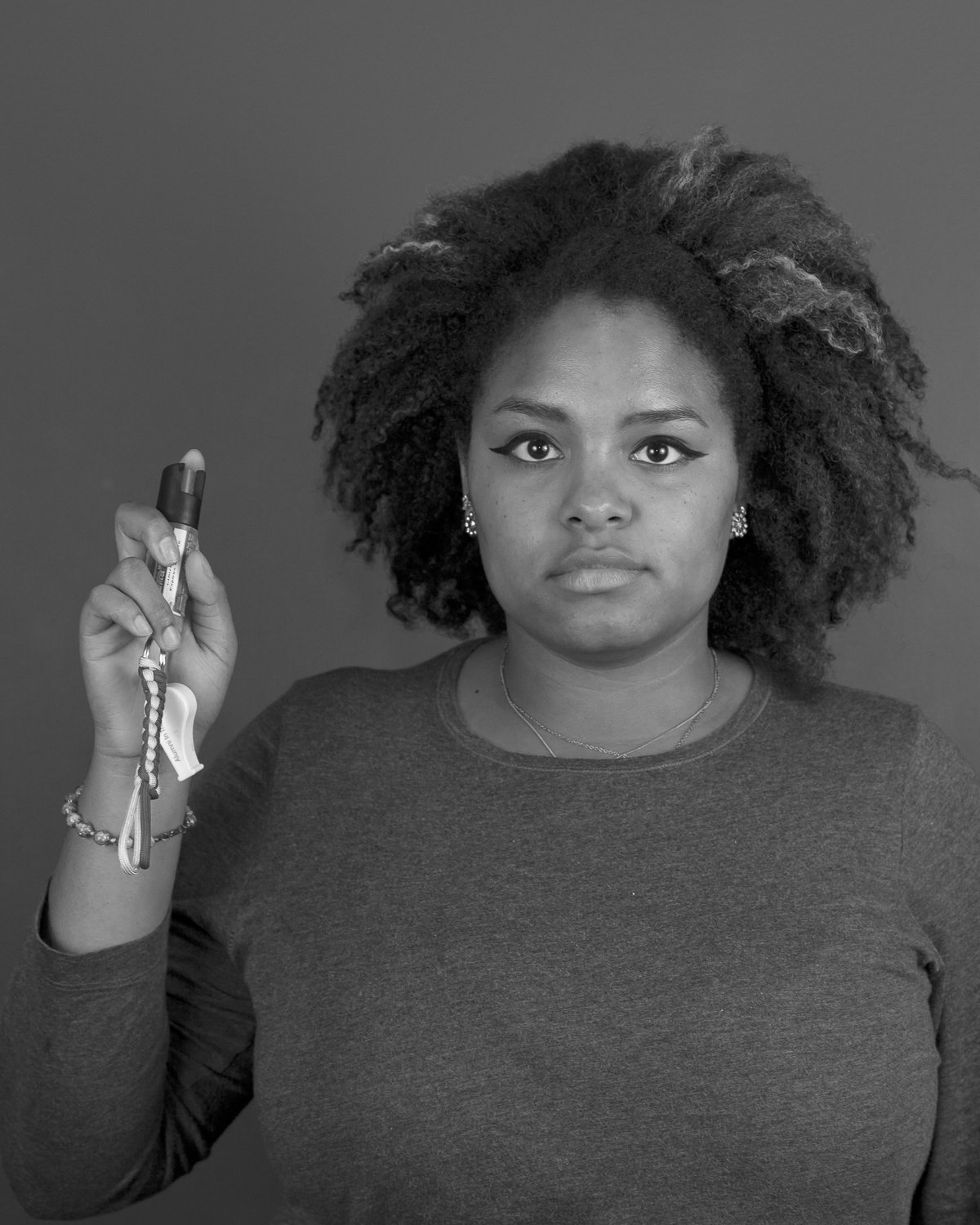Q&A: taylor yocom
By Zora J Murff | February 2016
Taylor Yocom received her BFA in Photography from The University of Iowa in May 2015. She is an Iowa based artist and her photography and collages explore societal and personal relationships through everyday objects and printed matter. Her photo series, Guarded, has appeared in publications such as Vanity Fair Italy, Buzzfeed, USA Today, and the Huffington Post amongst others. Over the past six months, Taylor has taken Guarded on the road, visiting and collaborating with universities to further her work and speak with women about their personal experiences with campus sexual assault. Teamed up with her close friend and writer, KT Hawbaker-Krohn, they have been collecting stories and images for a co-authored book that will be published by Powerhouse Books in 2016.
Full disclosure: Taylor and I attended The University of Iowa together, and I was able to watch her begin her work on Guarded during our final semester there. Taylor's work comes at a crucial time as we are beginning to scrutinize sexual violence on campuses as well as normative gender responses and behavior surrounding victimization and consent. For this week's interview, Taylor and I discussed her work and how it relates to awareness and gender inequality. We also briefly touched on being an emerging artist and how "going viral" and social media may influence the trajectory of a young artist's work.
Zora Murff (ZM): Why don't we start with some background on Guarded.
Taylor Yocom (TY): The project started in Spring 2014 following a string of taxi-cab sexual assaults as well as a few assaults on campus grounds. Some classmates and I were at a loss of what to do with it. Casually one day we were just like, “I have mace,” or “I carry a printmaking knife,” that kind of thing. The guys in the class shocked that we (females) had to think about it. Their reaction made me realize that there was a difference in gender and vulnerability and I decided to work on it as a project.
I put out some open calls for models to come in and have their pictures taken. I remember hanging it up in the hallway one day and this woman I didn’t know had a reaction to it, and told me that it was something that I should pursue because people don’t realize that this (campus sexual assault) is a thing. Seeing a stranger react to the work in that moment was pretty pivotal and so I decided to keep going with it as my honors project. I took about thirty pictures for it.
ZM: Your anecdote reminds me of an excerpt from Rebecca Solnit’s, Men Explain Things To Me, in which she brings up this exact situation, women on a college campus explaining the intricate precautions they take a avoid sexual violence and thinking about rape all the time, while their male counterparts, “gape in astonishment.” Even as we have this conversation, it is difficult for me as a male to have to imagine being ever-aware of my surroundings out of fear. How does the lack of male awareness or acknowledgement add to the problem?
First, thanks for bringing this up. It's just sad that this situation has happened so many times. I think when people are more aware of the problems that affect people around them, there's less of a stigma or a chance of ignoring the problem. I think it's important to talk about this, but the only way people will be trusted to share their stories is if they're believed and are given the platform to talk. From my personal experience, I'm less likely to share what happened to me if I'm met with a line of questions (such as asking if someone was playing a joke on me when I said that I had to pull my mace out one night when someone grabbed my waist as I was walking home alone) that seem to be more about the logistics of the experience and having to prove it happened. A lot of times those questions are posed completely innocuously, but it seems interrogative. I think that might stem from unawareness. A much better environment would be to offer support and allow that person to elaborate if they are comfortable with it.
I think this philosophy is important for any issue that affects people with less privilege, and in analyzing how I want this discussion to be treated, I hope I'm more aware of how I'm treating others with different identities and levels of privilege. The biggest change I think we can make in shifting our philosophy in how we handle problems that affect specific identities is to allow those identities to discuss the problem and how it affects them and not insert our voices unnecessarily. This can hopefully lead to more awareness and change on how we view and handle these issues.
ZM: Would it be safe to say that Guarded is in a way about inequality?
Yes. The backbone of the project is that women/female identified people have this shared ritual of protecting themselves from sexual assault. The fact that so many stories reference Solnit's in that the men "gape in astonishment" shows who has the power and privilege in society. The fact that I remember my aunt showing me the keychain that looks like a cat head in a church parking lot when I was four years old really sticks out to me. Obviously I had no idea what sexual assault was then, but the fact that this memory sticks out shows how gendered this problem really is. I'm not trying to deny or erase that men experience sexual assault (and they do in numbers way higher than actually reported). I'm just trying to get people talking about how ritualized this issue is and hopefully that can bring out larger discussions.
ZM: How do you feel about the way campus sexual assault is addressed, either by the institution or by the student body?
TY: I see a lot more awareness and change on campuses and in how we talk about it on social media since I started school, which is good. I remember being eighteen and sitting in my family room doing the online alcohol/sexual assault modules before leaving for college and being SO angry that I was supposed to say I wanted to brush my teeth to have fresher breath for a guy and use that as an excuse to get out of sex. This has been identified as a problem and students have been so vocal about telling the institutions what problems they see and some changes have been made in response to this. Obviously, there's still a lot to do but I'm impressed with what has been done and how many students are passionate and vocal about this.
ZM: What do you feel needs to change about campus culture to prevent sexual assault?
TY: I don't claim to hold the answers on everything and I'm sure there are people who know how to to tackle this problem much better than I can even imagine. But I think at the base of a lot of disrespect and harm lies this attitude of not seeing others as actual people – and especially in the issues of women/marginalized identities, I see a lot of "what if they were your sister/mother/etc" which STILL brings it back to being related to you, the one being educated. I think divorcing the attitude from "what if you knew them" and how much it would hurt to see that happen to a loved one to an attitude of that person being a human being who deserves respect is a more holistic approach. So I think incorporating that attitude shift in not just campus but everyday life is a good place to start.
ZM: What role do you feel education plays in the prevention of campus sexual assault? Do you think Guarded can add something to that curriculum?
TY: Having the ones affected by problems and harms and violence being responsible for educating is very draining for them and also leads to this impossible standard of always being the voice for that identity or community. So, I think it's in the school's hands to make sure they're creating a safe community and to provide meaningful education/prevention for everyone. I hope that Guarded can become a starting point for discussions and hopefully help to expose the scope and impact of sexual assault.
M: Do you see the work as a form of art or activism or both? Does it matter to the work to make that determination?
TY: This is something I've thought about a lot, and it makes me think of the Walker Evans quote "I don't think an artist is directly able to alleviate the human condition. He's very interested in revealing it." I still don't know exactly how it applies to my work but it made me think a lot about the role of the artist. I think Guarded is a unique series because I'm representing my peers and myself (I have a self portrait in the series) so it's impossible for me to see the work as me being an outsider and I hope my passion comes through in the project. That being said, there's a lot of truth to his statement. I'm not the one with the answers, but I hope that the project causes people with the answers to get talking and spark change. And that's how I see the work as an act. So I hope that people read the work as they see fit and listen to the voices that do want to talk about their experiences or enacting change.
ZM: At the end of your final semester at The University of Iowa, Guarded, received a lot of attention due to Zooey Deschanel sharing your work on her blog, Hello Giggles. Earlier this year, Featureshoot put out a series of interviews asking artists their thoughts about their work going viral. Do you think having so much attention focused on your budding series changed your ultimate realization of it?
TY: I read the interviews and can definitely relate to some of the artists. May 2015 was a truly surreal and dare I say life-changing experience and I wouldn't trade exposing my work like this for anything. But it was stressful at times because I was always paranoid that I wasn't being timely enough. Juggling interview requests while having dinner with your best friend during her last week in town and leaving class and seeing a dozen new emails was a bit overwhelming but totally worth it. At the end I think seeing the feedback pushed me to continue with the series. This gave me the motivation to go to other campuses and shoot (something I thought of as a distant, impossible dream) and have the credentials to be taken seriously to do so.
ZM: For me, this also begs the question of representation and the role social media plays in sharing art. Was your work ever shared in a way that you felt it was misrepresented?
TY: I was very stressed about that for the first few weeks but then realized that once your work is out in the open, on the internet, it's very hard to control your narrative so you might as well not worry too much. The main misrepresentations I saw was that a takeaway of me creating a sort of how-to guide to protect yourself and that people thought some methods/tools weren't effective, or that you should just go out and buy a gun instead if you really wanted to be safe. The work was made to use the self defense objects as a symbol or metaphor for always being "on guard." Since the keychains are something used everyday, I saw this as a constant looming reminder. The positives of social media definitely outweighed the negatives. I had a first hand experience of how it widens the audience reach in a powerful way – instead of secluding the work to a gallery in a specific region that only a certain demographic can see, having the work on popular sites widened the reach to the world. I got messages from women on almost every continent telling me how the work spoke to their stories and that was unbelievably powerful.
ZM: Do you ever read the comments?
TY: Hahahah, I was warned by a professor not to! But yes, sometimes. Not all of them. I try to have thick skin because I figure some of the comments discounting my work as "fear mongering" and invalid are from people who don't believe sexual assault is even an issue, so I know not to take that too personally. That being said, I see social media as a wider platform for critique and engagement, so I try to get a general feel of what the reactions are but don't let myself go too far down the rabbit hole!
ZM: Where you do plan to take the work next?
TY: 2016 is very exciting and a few events for Guarded are lined up already! I'll be making a stop in Arkansas with KT. The project will be also be up in some capacity at some schools in Southeastern Iowa and in Iowa City. I'm also excited to announce that the work will be in the Viaduct Gallery at the Des Moines Social Club in April! I'm always in talks with schools about bringing the work, discussion, and my camera to them and I'm excited for how the rest of the series will grow.
ZM: Thanks for sharing with us, Taylor.
TY: Thank you so much, Zora!
All images © Taylor Yocom


